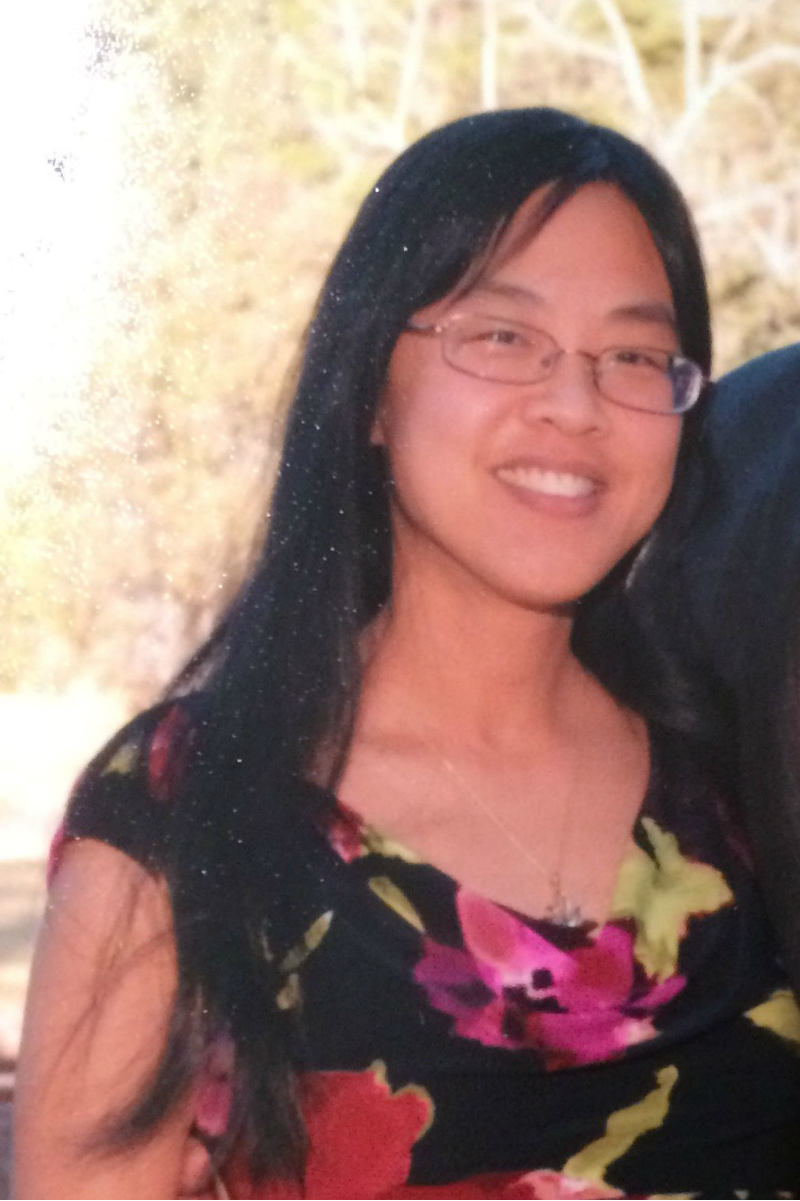
Faculty of Science alumna and donor Hannah Cheung Beird says her time at the University of Alberta equipped her for success in her scientific career-something she passes on to the students of today. Photo credit: Hannah Cheung Beird
Hannah Cheung Beird ('01 BSc) hadn't always planned on becoming a scientist. In fact, she had originally planned to major in music-until an injury kept her from auditioning. Pursuing studies in the Faculty of Science instead, Beird discovered a passion for research and inspiring excitement about science in those around her; a passion she carries with her today as a senior research scientist and a generous donor to the Faculty of Science.
Undergraduate life was busy for Beird. Between her studies in the Faculty of Science, Beird took violin lessons and played in the Academy Strings orchestra, including tours through British Columbia and Cuba. She volunteered with Student Accessibility Services, reading textbooks onto 8-track cassette tapes. Beird was active with the Amnesty International student group, completed an industrial internship, and worked part-time in the Medical Sciences Library. In fourth year, she taught violin lessons in St. Albert on Saturdays.
After completing her Bachelor of Science in genetics at UAlberta, there was no slowing down for Beird. She went on to complete a PhD at the University of Texas and is now a senior research scientist at the MD Anderson Cancer Center in Houston, where she works with a multidisciplinary team with the goal of using genomic profiling to identify genetic aberrations that could affect cancer treatments.
"I had lost one grandparent, my violin and piano teachers to cancer and it was a painful experience," said Beird. "I wanted to contribute to cancer research in hopes of helping others with cancer."
Prepared for success
When she pursued her graduate studies in Texas, Beird came to realize that her undergraduate experience at UAlberta had equipped her for the challenges she would face as she worked toward her PhD.
"My classes at the University of Alberta really prepared me for graduate school. My undergrad exams were a lot harder than those in grad school, and I found I had been taught more critical thinking and developed more curiosity than other fellow graduate students," reflected Beird. "I remember seeing the innovation from the members of the Faculty of Science and being inspired to think outside the box for a greater purpose.
"Once I realized how my education had enabled me to be successful, I wanted to support my school and give back."
Supporting students today
In the spirit of recognizing and rewarding students passionate about science, Beird established the Outstanding Research in Genetics Prize, a scholarship awarded to students for outstanding achievement in Biology 499, a course which gives students the opportunity to carry out research with supervision from a member of the Department of Biological Sciences.
"Biology 499 is a year-long project. It takes time, patience, and dedication to plan and carry out quality research," said Beird. "It is not an easy course to take alongside all one's other classes. Time management is of the essence, and it takes a lot of communication with principal investigators, grad students, and postdocs about how to proceed. Those who can do all of these things are those who are successful."
Upon making her own transition to graduate studies, Beird felt that she had been well-prepared by her classes at UAlberta. Recognizing student achievement in Biology 499 is her way of continuing to equip future researchers with the tools for success.
"I wanted to reward those who persevered and developed high quality research. I also wanted to encourage the development of communications skills," explained Beird. "If you can't explain your research to others in a succinct, clear, and exciting way, then it's hard for others to understand the meaning, purpose, and reason for the research. Without those skills, it becomes difficult to get others excited about science."
To Beird, that ability to encourage others to see the wonder in science is the mark of excellent research. Getting people interested in science is something that Beird believes the Faculty of Science excels at, and something her scholarship supports.
"What sets the University of Alberta Faculty of Science apart from other institutions is its ability to stir up excitement about science; the wonder in discovering new things and the fun in being innovative," said Beird. "It's very inspirational."